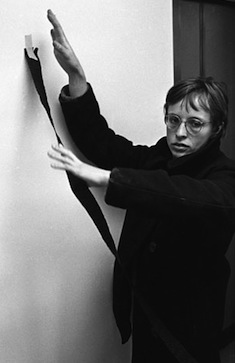 I turned in the second draft of my book yesterday, an event that made me more anxious than glad. I realize now that I only have a few weeks left to sort out some lingering mysteries in the central plot, specifically those related to the main characters’ inner dramas. Without giving too much away, my two protagonists turned their backs on everything they knew, and everyone who loved them. One came to regret that decision, and one did not—though perhaps that is an over-generalization. How did this act of total rejection fit into their attempts to take charge of their own narratives?
I turned in the second draft of my book yesterday, an event that made me more anxious than glad. I realize now that I only have a few weeks left to sort out some lingering mysteries in the central plot, specifically those related to the main characters’ inner dramas. Without giving too much away, my two protagonists turned their backs on everything they knew, and everyone who loved them. One came to regret that decision, and one did not—though perhaps that is an over-generalization. How did this act of total rejection fit into their attempts to take charge of their own narratives?
One masterpiece I’ve been looking to for inspiration is “The Making of a Terrorist,” a five-part United Press International series from 1970. (Link here; scroll down to the bottom for the stories.) The series, which earned a Pultizer Prize, recounts the short but fascinating life of Diana Oughton, the daughter of a wealthy Chicago family who died while building bombs for the Weathermen. It is an epic piece of reporting, rich in detail about Oughton’s transformation from privileged young lady to violent radical. This passage, in particular, is something I’ve been reading again and again; it describes a key moment from the two years that Oughton spent in Guatemala, working for Quaker-run volunteer program:
Diana’s growing concern over the American influence in Guatemala was matched by a growing dislike for the American tourists who came to Chichicastenango and stayed at the Mayan Inn, where the spent enough in a week to support an entire Indian family for a year. She hated the Americans’ gaudy clothes, their broken Spanish, their silly questions, the way they snapped pictures of the Indians. She began to hate doing the marketing because the Americans would always spot her blonde head above the crowd and ask what in the world an American girl was doing in such a godforsaken spot.
Diana’s distaste for American extravagance was also directed at her friends. When an old college friend and her husband, both heirs to large fortunes, came to Guatemala for a visit, Diana was disgusted by their complaints about the food and water and by their extravagant spending. “My God,” Diana said to Kimmel after the couple had left, “She used to be my very best friend in the whole wide world.”
That moment resonates with me because it’s something we’ve all experienced to some degree: the realization that the people with whom we shared childish pleasures have become strangers to us. But for Oughton, it represented something even deeper: that when she did return to the U.S., she would never be able to melt back into her previous life. The comfortable yet boring future that had been laid out for her during her years at Bryn Mawr was now odious. She had to find a way let the world know she rejected it in the strongest terms possible.


Like gas stations in rural Texas after 10 pm, comments are closed.